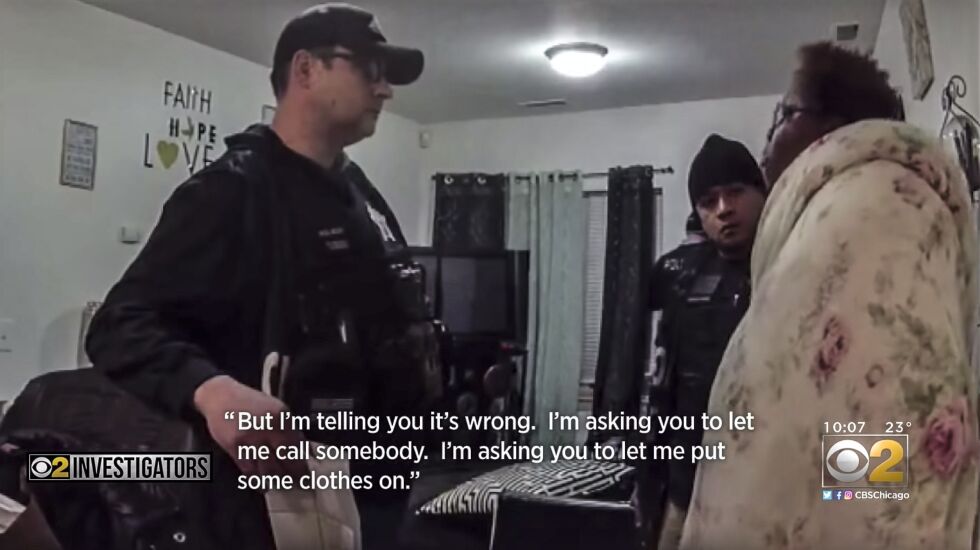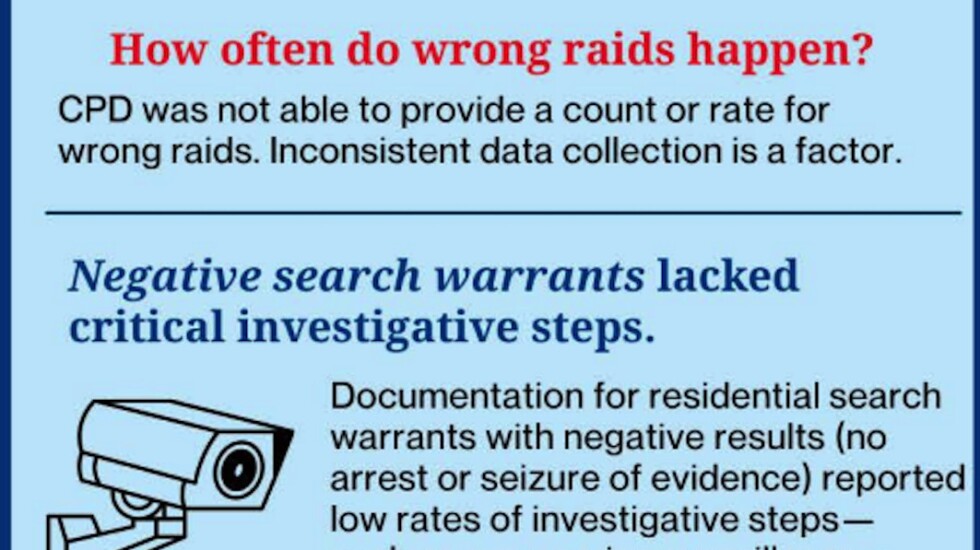
Chicago cops conducted at least 21 “wrong raids” of homes from 2017 through 2020 but poor recordkeeping makes it difficult to say how many more might have happened, too, according to City Hall’s inspector general.
The good news, according to a report released Wednesday by Inspector General Deborah Witzburg, is that the Chicago Police Department plans next year to launch a new electronic system for tracking search warrants, including those that result in wrong raids.
And newly proposed revisions to the police department’s search warrant policy “are encouraging steps toward increased accountability,” the report said.

Outrage over the search of Anjanette Young’s Near West Side home in 2019 — when she was forced to stand naked and handcuffed until officers realized they were in the wrong apartment — prompted the police department to change its search warrant policy in early 2021.
Since then, Chicago cops have been serving fewer search warrants on homes. From 2017 through 2019, they served about 5,000 warrants at residences, but from 2020 to 2022, fewer than 900 were executed, according to the inspector general.
Of the wrong-raid allegations the inspector general’s office reviewed, one warrant was served at a garden unit apartment when the warrant listed a first-floor apartment in the same building and a warrant was served at the address listed on the warrant “but the inhabitant claimed that the individual named in the warrant lived two houses down the street.”
In addition to such wrong raids, Witzburg’s report examined “negative raids” in which no one was arrested and no evidence was recovered.
Officers in gang and narcotics units have a lower rate of negative raids than cops in police districts, probably because those specialized units have more access to investigative databases and registered informants, the report said, pointing out that those resources are necessary to ensure that all officers are able to conduct thorough investigations to verify the accuracy of information on search warrants.







